Det er mange illevarslende tegn som viser at du trenger å se en gastroenterolog, og i dette innlegget vil du lære hvilke symptomer du bør se etter. En gastroenterolog er en medisinsk fagperson og lege som har gjennomgått en streng og omfattende opplæring for å lære å håndtere, behandle og kurere medisinske forhold knyttet til mage-tarmkanalen. Disse områdene inkluderer tarmen, magen, leveren, spiserøret og endetarmen.
Med en slik tittel som krever over 5 års opplæring i "internmedisin" og "Gastroenterology" (ved fullført medisinsk skole); GI-leger gir eksepsjonell omsorg og behandling og er vanligvis mer vellykkede enn leger når det gjelder diagnostisering og behandling av gastrointestinale komplikasjoner.
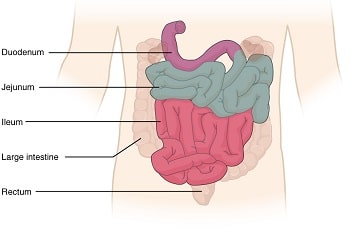
Innholdsfortegnelse
Gastroenterologer får spesialisert opplæring i "endoskopi", som er praksisen med å bruke et lite og smalt, men likevel fleksibelt "rør" med et innebygd kamera som vil bli brukt til å navigere i GI-kanalen under prosedyrer, operasjoner eller diagnostiske tester for å se om noen sykdommer eller vekster er tilstede.
Når det gjelder gastrointestinale medisinske problemer, vil det å søke behandling fra en gastroenterolog sikre at du får den mest effektive behandlingen mulig ettersom du vil motta behandling fra en medisinsk fagperson som har den unike og dyptgående opplæringserfaringen som vil føre til at du får både høykvalitets og "omfattende" behandlingspleie for eventuelle GI-relaterte medisinske komplikasjoner som du måtte møte.
Det er statistisk bevist gjennom bruk av studier at gastroenterologer utfører koloskopier og omfattende behandling for gastrointestinale problemer med en høyere suksessrate sammenlignet med behandlingen(e) som gis av andre typer leger. Hva dette betyr for deg er at du vil motta behandling som nøyaktig vil oppdage tilstedeværelsen av kreft eller polypper, samtidig som det resulterer i en reduksjon i sjansen for en medisinsk komplikasjon som oppstår fra behandlingen (GI-behandlede pasienter kan også forvente å bruke mindre tid på sykehuset).
I denne artikkelen vil vi dekke "Topp 15 advarselstegn på at du trenger å se en gastroenterolog" som vil hjelpe deg å finne ut om du har symptomene på en medisinsk komplikasjon som vil kreve oppmerksomhet og behandling fra en GI lege.
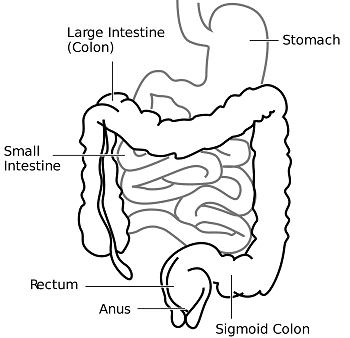
Når du først begynner å gjenkjenne nydannede "smerter" eller tegn/symptomer som stammer fra fordøyelseskanalen, som halsbrann, magesmerter, diaré eller forstoppelse, kan du spørre deg selv om du bør besøke en fastlege eller ikke. internlege eller en gastroenterolog (fordøyelsesspesialist). Hvem du velger for å diagnostisere tilstanden(e) i begynnelsen av at de oppstår, kan variere på en rekke faktorer.
I noen situasjoner kan det være uklart å ta det riktige valget om å oppsøke lege eller gastroenterolog, men nedenfor hjelper vi deg med å forstå symptomene for å se etter gastrointestinale problemer som bør diagnostiseres og behandles av en GI-lege.
Hvis du akkurat nå opplever symptomer eller smerter i fordøyelsesområdet for aller første gang, kan det første trinnet være å søke råd fra primærlegen din, for eksempel en fastlege eller internlege.
Dette vil forhåpentligvis være en lege som du har bygget et forhold til over tid, da han/hun ville ha full tilgang til din medisinske historie og behandlingshistorie som kan gjennomgås for å finne ut hva som forårsaker symptomene du opplever.
Når du møter legen din og gir ham/henne symptomene dine, vil det bli utført en fysisk undersøkelse for å avgjøre om tester skal utføres eller ikke. Når legen har fullført den fysiske undersøkelsen og har en god ide om hva som forårsaker de plutselige gastrointestinale smertene, kan han finne ut at behandlingen må gis av en spesialist som kan gi affektiv bedring. I dette tilfellet vil "spesialisten" være gastroenterologen.
Dr. Tarugu, en erfaren og prisvinnende gastroenterolog fra Sør-Florida anbefaler at individer som konsekvent opplever enten sporadiske eller tilbakevendende oppblussing under tidligere diagnostiserte tilstander (som ulcerøs kolitt, Crohns sykdom eller IBS) umiddelbart bør søke behandling hos en gastroenterolog for å unngå ytterligere vekst eller komplikasjoner sterk> modenhet.
Under behandlingen fra gastroenterologen vil han/hun oppdatere legen din med statusen til tilstanden din(e) og fremgangen som gjøres. Disse oppdateringene vil hjelpe din primærlege til å ha en god forståelse av statusen din, noe som vil hjelpe legen til å gi deg riktig pleie nedover listen som støtte etter rekonvalesen. Et par andre gastrointestinale sykdommer som GI-leger behandler er sykdommer som er lokalisert i bukspyttkjertelen eller leveren.
Hvis primærlegen din mistenker at det oppstår problemer i disse områdene, er det trygt å anta at du vil bli henvist til en lokal gastroenterolog for en grundig diagnose, slik at en behandlingsplan kan utarbeides.
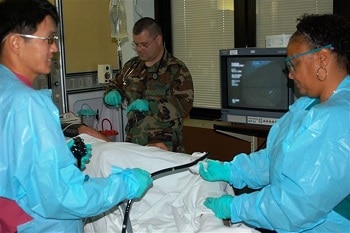
Hver av dem er unike tegn på potensielt alvorlige tilstander som ikke bør avvises som «ikke viktig», da hvert av symptomene ovenfor kan føre til mye verre komplikasjonssignaler hvis de ikke diagnostiseres og behandles «tidlig».
Nedenfor vil vi dekke hva hvert av disse symptomene kan bety og hvorfor det er viktig å søke veiledning og behandling av en GI-lege så raskt som mulig.
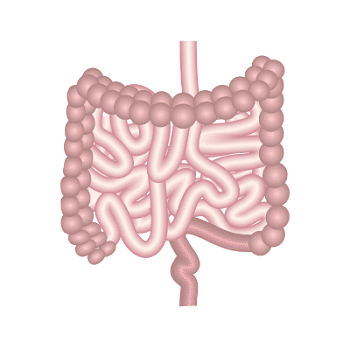
Det er anslått at totalt 60 millioner individer i USA opplever og lider av halsbrann i gjennomsnitt minst en gang i måneden, med anslagsvis 15 millioner mennesker som lider av tilstanden "daglig". Å oppleve symptomer på sur fordøyelsesbesvær (halsbrann) er mest typisk blant gravide kvinner og eldre personer.
Det er en tilstand som kalles "Gastroøsofageal refluks", som er en kroppslig tilstand som får magesyre til å strømme bakover og returnere inn i spiserøret. På grunn av dette vil noen individer dessverre oppleve symptomer som stammer fra dette når denne prosessen finner sted (som kan være daglig, ukentlig eller månedlig).
Et av de første tegnene på å gå til gastroenterolog for halsbrann er opplevelsen av å føle et opphetet ubehag som kommer fra regionen bak brystbeinet. Denne følelsen har en tendens til å gå over til hals- og nakkeområdet, så ubehag av noe slag i dette området bør være et advarselstegn at du må oppsøke gastroenterolog for diagnose/behandling.
Et annet advarselstegn på sure oppstøt er en "sur" eller "bitter" smak bak i halsen, da dette er smaken av magesyren. Siden symptomene på opphetet trykk på halsbrann kan vare i opptil flere timer (og forverres ved spising), bør en slik konsekvent agitasjon i dette området få deg til å søke umiddelbar diagnostisk testing fra en GI-lege.
Hvis du opplever slike symptomer 2 eller flere ganger i uken, eller opplever vekttap, blodtap eller mat som setter seg fast, kan du få et tilfelle av halsbrann som er svært alvorlig. Hvis slike symptomer oppstår kan du muligens ha en tilstand kjent som "Gastroøsofageal reflukssykdom (eller "GERD for skudd).
Før du kan begynne å forstå de eksakte årsakene til GERD eller gastroøsofageal reflukssykdom, må du først forstå hva årsakene til halsbrann er. Et flertall av individer vil føle agitasjon av halsbrann i tilfelle spiserørslimhinnen kommer i kontakt med magevæsker i lang tidsperiode .
Disse magevæskene består av noen få forskjellige materialer, inkludert fordøyelsesrelaterte enzymer og syre. Ettersom magesyren forblir i kontakt med slimhinnen i spiserøret, kan det oppstå en skade på spiserøret som resulterer i en ubehagelig, brennende og smertefull følelse.
Mens en muskelventil mot bunnen av spiserøret (kjent som "Lower Esophageal Sphincter" eller "LES") holder syre i magen og borte fra spiserøret (når den fungerer som den skal), er ikke dette tilfellet hvis en person har enten "Gastroøsofageal reflukssykdom" eller "GERD" som "LES" har en tendens til å slappe av regelmessig, noe som gjør at magesyren reflukser tilbake til spiserøret.
Et slikt symptom bør behandles så snart som mulig av en GI-lege for å stoppe utviklingen av ytterligere komplikasjoner.
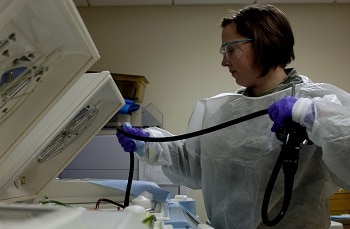
Når du besøker GI-legen din, vil en behandlings-/gjenopprettingsplan bli formulert basert på de diagnostiske resultatene.
Hvis du selv medisinerer mer enn to ganger i uken for halsbrann, er dette alene et tegn på at du trenger å bli behandlet av en gastroenterolog. Tilstander som ikke behandles av en erfaren GI kan potensielt føre til en mer alvorlig komplikasjon.
Har du problemer med å svelge mat? Opplever du problemer med å ta ned væsker? Opplever du sporadisk eller konsekvent hevelse i halsområdet? I så fall kan dette muligens være et advarselstegn på en mindre eller alvorlig tilstand som bør be deg om å oppsøke en gastroenterolog for diagnose. "Enhver form for smerte eller agitasjon forårsaket av drikkevann kan være et advarselstegn på et alvorlig gastrointestinalt problem," sa Dr. Vikram Tarugu, en erfaren, styresertifisert og prisvinnende gastroenterolog.
Andre advarsler som gastroenterologen må vite er om svelgevanskene dine er ledsaget av hikke, heshet i halsen, hyppig hoste eller metthetsfølelse etter å ha spist en veldig liten porsjon mat. Hvis noen av disse potensielt farlige advarselsskiltene oppstår, kan årsaken være kreft i spiserøret. Som sådan, hvis du opplever noen av disse advarselsskiltene, ikke nøl å søke råd fra din primærlege eller en gastroenterolog hvis du allerede har et forhold til en. Lukter du en uvanlig lukt fra passerende gass? Dette kan være et varseltegn på smittsomme parasitter
Overraskende nok passerer den typiske personen i gjennomsnitt nesten 2 liter gass på daglig basis med mindre unormalt forekommer i fordøyelseskanalen. Et advarselstegn du bør være oppmerksom på er hvis du opplever smerte eller ubehag i mageområdet i perioder med gassovergang eller når du tar avføring.
Videre, hvis avføring og passerende gass har begynt å ha en uvanlig grusom lukt, kan dette være et tegn på at du har giardia, som er en parasitt som irriterer og infiserer tarmene. Med giardia som kan forverres hvis ubehandlet, bør et advarselsskilt som dette ikke overses.
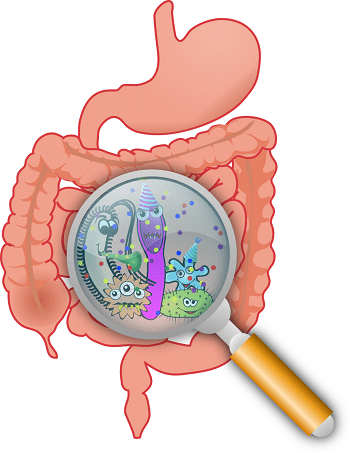
Vi har alle opplevd oppblåsthet på et tidspunkt i livet, men hvis det blir vedvarende, er det en mulighet for at det er en underliggende årsak. Hvis du har lagt merke til at du har det vanskelig med å ta på deg shortsene dine når du for bare noen dager siden brukte dem uten problemer, kan det hende du "hopper over å gå på treningsstudioet" ikke har skylden.
Oppblåsthet oppstår ganske enkelt når inntaket av mat/luft er for mye og kroppen vår ikke blir ordentlig kvitt det. Men hvis oppblåsthet starter brått uten åpenbar grunn (du ikke har spist på en stund) og oppstår samtidig med smerte eller blod i avføringen, kan dette være et advarselstegn på at det er på tide å oppsøke en gastroenterolog.
Et slikt tegn kan muligens bety at utviklingen av cøliaki, GERD (Gastroøsofageal reflukssykdom), IBS (irritabel tarm-syndrom) forstoppelse eller gallestein har begynt.
I alle tilfelle at du gjenkjenner blod i avføringen eller unormale skarpe smerter i mageområdet når du gir gass eller tar avføring, må du definitivt diagnostiseres og behandles av en GI-lege.
Et advarselstegn som bør diagnostiseres av en GI-lege er plutselig, uventet og uforklarlig vekttap. Mens plutselig vekttap kan tilskrives forskjellige andre helserelaterte problemer, er fordøyelsessystemet vanligvis det beste stedet å lete etter roten til problemet.
Dr. Tarugu, en styresertifisert gastroenterolog i Sør-Florida med over 2100 vellykket fullførte prosedyrer uttalte at "de første problemene du ønsker å isolere som årsak til plutselig vekttap er kreft i magen, bukspyttkjertelen eller tykktarmen".
Som sådan, hvis du opplever plutselig vekttap, kontakt en gastroenterolog slik at du kan være sikker på at det ikke er kreft eller Chrons/cøliaki (som vil redusere kroppens evne til å absorbere viktige næringsstoffer).
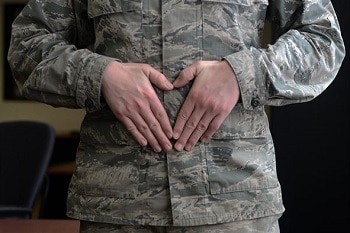
Mens du tar avføring, vil det sannsynligvis være litt bekymringsfullt å legge merke til noen rødlige stier på toalettpapiret, da vi alle vet at blødning fra et slikt område ikke er normalt. Blødning fra endetarmsområdet kan være et tegn på en potensielt farlig tilstand og bør diagnostiseres og behandles «umiddelbart».
Selv om det er mulig at blødningen er forårsaket av hemoroider, hvis den ikke er det, vil det være absolutt nødvendig å oppsøke en gastroenterolog, spesielt hvis blødningen gjentar seg og hvis personene er over 40 år.
Fordøyelsesbesvær (også medisinsk referert til som "dyspepsi") er begrepet for å beskrive en tilstand som involverer flere forskjellige symptomer som oppstår under inntak av et måltid. Noen av disse symptomene kan inkludere følelsen av å bli "mett" når du har fullført et måltid i tillegg til enten en "smerte" eller "brennende følelse" i øvre del av magen.
Fordøyelsesbesvær er en ganske vanlig tilstand blant middels til eldre voksne, og den forekommer på månedlig, ukentlig eller til og med daglig basis.
Hvis du opplever noen av følgende symptomer enn å søke råd og behandling fra en GI-lege er avgjørende for komplikasjonsforebygging:
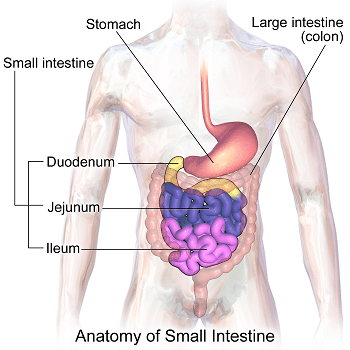
When visiting your GI doctor a treatment/recovery plan will be formulated based upon the diagnostic results.
Possible treatment suggestions may include:
Keep in mind that indigestion and heartburn are two different conditions with each having their own unique symptoms.
However, if you’re experiencing the symptoms of both then it’s possible that you’re suffering from both of the two. Regardless, whether the agitation is minor or severe it’s important that you take such a warning signal seriously and seek treatment from a GI doctor that will help to diagnose and remedy the condition(s).
Nausea is quite an unpleasant experience and can use intense feeling of dizziness, minor to severe discomfort and paint in the abdominal area. On the other hand, often times accompanies by nausea, vomiting is the occurrence of a contraction from the stomach that during times of nausea can help one feel a bit better as the content of stomach is during vomiting is the process in which it’s propelled up thru the esophagus.
Intense and consistent vomiting could possibly be a warning sign of a Gastroenteritis which can be treated by a gastroenterologist. Gastroenteritis is known to be a viral infection that causes inflammation within the digestive tract and can be treated thru the use of medication(s) which will be recommended by the gastroenterologist that you choose to visit.
Are you experiencing a dullish pain in the stomach, weight loss, the undesired to intake food due to pain or nausea/vomiting? If so, this could be a sign of a minor yet serious matter. Such warning signs could possibly mean that you’re suffering from a Peptic Ulcer which can be diagnosed by a gastroenterologist thru the use of an upper GI series or an endoscopy.
If you’re experiencing upper abdominal pains (one of the biggest signs of a stomach ulcer ) be sure that you seek the diagnosis/treatment from a GI doctor so you can have it treated while preventing the possibly of further complications arising from the condition.
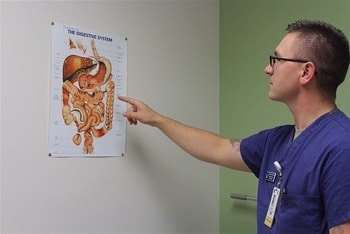
Individuals that may have GI disorders can suffer from warnings signs that are both painless and pain-induced. Such symptoms can be diarrhea/constipation (in some cases, irritable bowel syndrome). Such signs, whether they’re painful or not, could possibly be a sign of a condition other then IBS known as “centrally mediated abdominal pain syndrome” (or “CAPS” for short) which used to be medically referred to as “functional abdominal pain syndrome” (FAPS).
CAPS is a gastrointestinal disorder and is typically caused by a change in the nerve impulse sensitivity and will cause intense and frequent pain in the abdominal section which for some individuals will be quite severe.
In some cases, pain can be so intense and persistent that it’ll affect you in the similar way as the pain from a tooth ache as it can consume your focus/life since it has a tendency to “not go away” for extended periods of time. If such warning signs are present, seek counsel from a gastroenterologist where an antidepressant may be prescribed to not only reduce anxiety caused by the pain but to help alleviate the pain all together.
If you’re experiencing the feelings of belching, bloating or flatulence (build-up of gas in the alimentary canal), these could be warning signs that you you could possibly be suffering from a number of different conditions including allergies to certain foods, lactase deficiency, peptic ulcer disease or a H. Pylori Infection. Each of these we’ll cover below more in-depth so you can determine the possible cause(s) of your symptom(s).
Food Allergies – While not typical, the most severe allergic reaction that one can inherit from the ingestion of food is known as “anaphylaxis” which could possibly be life-threatening. Studies have shown that 90% of all allergies related to foods are caused from the ingestion of soy, wheat, shellfish, tree nuts, fish, peanuts, milk and eggs. If pain tends to arise after consuming such food items then this may be a signal that you need to seek the treatment of a gastroenterologist.
Lactase Deficiency – While lactase deficiency is pretty common with an estimated 3 million cases per year alone within the US, it’s an issue that’s brought upon individuals whose body has difficulty with digesting the sugar contents within dairy products. These issues arise in the digestive tract and can be treated by a GI doctor thru the use of recommended off-the-shelf medication(s) or by a prescribed medication (depending on the severity of your condition.

Individuals suffering from “Lactase Deficiency” can expect such warning signs to arise within 30 minutes to 2 hours from the consumption of milk or other food items containing dairy.
While symptoms aren’t always noticeable there are some warning signs that if arise should prompt you to see a gastroenterologist.
If you experience persistent and severe abdominal pain, have difficulty with swallowing or have bloody/black vomit that has the appearance of coffee grounds then seek diagnosis from a GI doctor for treatment as these are all warning signs that need attention before complications arise.
If you experience a yellowing of the eyes/skin then it’s very well possible that this is the warning sign that Jaundice is occurring. Jaundice is a condition in which there’s an excessive amount of bilirubin in the blood which is known, medically, as hyperbilirubinemia.
Bilirubin is a “yellow pigment” substance that affects the color pigmentation in the white of your eyes and your skin tone.
If you’re experiencing such signs of this condition schedule an appointment to see a GI doctor as quickly as possible as if not, further complications could develop which could lead to:
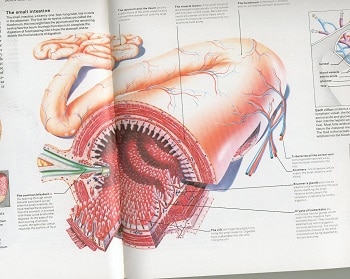
One warning signing of a possibly serious complication that should be diagnosed immediately is pain experienced in the abdominal section with the occurring pain spreading/radiating to your back. Such a feeling is a strong indicator and warning sign of “gallstone pancreatitis ”.
Gallstones are a pretty common cause of pancreatitis and this is caused by gallstones that develop in the gallbladder to block the bile duct which puts a stop to the pancreatic enzymes from being able to travel to your small intestine (which forces them to return to the pancreas).
During this process, these pancreatic enzymes will agitate the pancreas cells which will cause inflammation which can cause a great deal of pain that will radiate from the abdomen to the back. In some cases, this feeling of pain will also be accompanied by a tingling, prickly sensation. If such warning signs arise, seek attention from a physician or preferably a gastroenterologist who will help to diagnose the issue so proper treatment can be prepared/prescribed.
In the event that the gastroenterologist determines that your pancreatitis us due to the gallstones then an ECRP (Endoscopic Retrograde Cholangiopancreatography) will be performed which is a procedure conducted by the GI doctor to remove the stones.
For heavier/obese women it’s important to take cautious note of any pain that stems from the upper right-hand side of the abdominal sections as such a pain could be the indicator of “gallstone pancreatitis” (a prominent condition for heavier-set women). What’s causing such pain is the process of the gallstones blocking the bile duct which causes a chain reaction as this will stop any/all pancreatic enzymes from traveling to the small intestine providing the enzymes with no choice but to return to the pancreas. If the gallstones travel from the gallbladder to the common bile duct, gallstone pancreatitis can develop which is a condition that can continue to worsen and mature in pain while also leading to further complications if not treated.
If you’re medically considered to be “obese” and have had such pain on a regular or consistent basis, consult a GI doctor as treatment in the form of medication and surgeries are available (depending on the severity of the condition). Only making 1-2 bowel movements per week? Difficulty with going? Pain during defecating?
There are a few signs to look out for and notate when looking for signs of possible gastrointestinal complications. A few of these signs include difficulties with making bowel movements, only making 1-2 bowel movements per week or if you experience pain during defecating. Constipation is considered to be present whenever an individual is making only 1-2 bowel movements per week so if this persists this alone could be a warning sign of “anal fissure”. With an estimated 200,000 cases per year within the US alone, anal fissure is a condition that refers to the tearing in the lining of the anus which can cause an immense amount of pain during all three scenarios we referred above (making bowel movements and pain during throwing-up).
Anal fissures develop throughout the specialized tissues that line both the anus and anal canal and this is called the “anoderm”. The reason this can be (and more than likely “will be”) so painful is because of the over-abundance of nerves located within the anal canal. Diagnosis and treatment from a gastroenterologist is recommended. Typically, diagnosis of this condition can be determined by the physical inspection of area with either medication or surgery being recommended to treat (depending on the severity of the anal fissure).
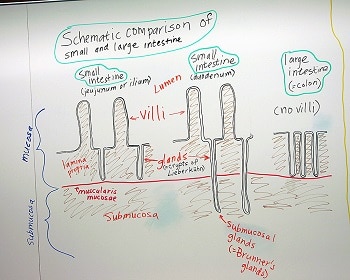
If you’re experiencing symptoms of a condition that includes intense and regular fevers, nausea/vomiting and diarrhea then notate these warning signs to show a gastroenterologist as these are signs of a possibly serious condition known as “bacterial gastroenteritis” which will need to be treated to prevent complications that could arise.
Bacterial gastroenteritis is a condition that develops and occurs whenever bacteria infiltrates your gut can and initiates an infection. If this occurs, inflammation will develop both in your stomach and intestines which will cause discomfort to say the least. Typical symptoms of “bacterial gastroenteritis” includes severe, extreme and persistent cramps in the abdominal area in addition to diarrhea/
While viruses are responsible for the majority of gastrointestinal infections bacterial infections are nearly just as common. A majority of people refer to bacteria-initiated infections as “food poisoning”.
There are a few different causes of “bacterial gastroenteritis” which can be poor hygiene habits, coming in close contact with pets or animals or from consuming foods/fluids that are contaminated with bacteria (even air-borne bacteria). If such warning signs arise, seek medical attention from a physician or preferably a gastroenterologist so the issue(s) can be properly treated to above any further development of bacterial growth.
First and foremost, any sign(s) of rectal bleeding is “not normal” and should never, in any scenario, be dismissed as a minor or non-severe matter as it’s a serious occurrence that requires the attention and treatment from a gastroenterologist.
One of the most prominent signs and symptoms of “irritable bowel syndrome” (IBS) is rectal bleeding and the presence of blood in the stool. In some circumstances, a warning sign is not making a bowel movement at all or only 1-2 times per week.
Blood expressed from the body caused IBD will appear to be “bright red” while if blood is originating from the upper area of the digestive tract the blood will be darker (dark/black stools). If such a sign has arisen be sure that you notate the darkness of the blood so you can provide this detail to a gastroenterologist who will use this information as a part of the diagnosis and treatment(s). In any case, if bleeding from the rectum is “severe” or if you’re throwing-up blood than this is a sign of a severe condition occurring which needs medical attention “immediately”.
Furthermore, such signs could also be a warning sign that you’re suffering from either “Crohn’s disease” or “ulcerative colitis” which are also conditions that you’ll want to have inspected by a GI doctor. Chron’s disease is a condition affecting 200,000 individuals per year and is a chronic, inflammatory irritable bowel disease that runs alone the digestive tract lining.
Ulcerative colitis is another chronic disease that inflames the bowel area which results in the digestive tract becoming inflamed. If any of the warning signs above are occurring, seek medical attention. You don’t want to take the chance of such conditions maturing in growth/size as not only could further complications arise but you may have to undergo additional treatments which otherwise could’ve been avoided had you have the condition(s) treated early on.
Experience vague or minor abdominal pain with a change in bowel movements last for 3+ months? Any changes in your normal bowel movement habits that are lasting for 3+ months is a sign that your body is changing, or, is changing due to an irregular occurrence/condition that should be looked at by a GI doctor; especially when you’re experiencing changes in bowel movement that are lasting for an extended period of time.
Irritable Bowel Syndrome (IBS) is a condition that can spark a significant amount of pain to its victims and will initiate a discomforting agitation feeling in the abdominal area. There are some very common symptoms of having IBS which include constipation, gas and diarrhea (in addition to a pain-induced belly). Having your IBS diagnosed for the severity will help you to have a planned pain-management regiment that will be created for you by the gastroenterologist.
When your stomach is experiencing pain it’s caused from the constipation or the diarrhea although is the painful feeling(s) diminish upon making a bowel movements then more than likely, your symptom(s) are an indicator of your pain being tied to a condition other than IBS (consult a GI doctor for diagnosis). This pain is initiated by contractions which can and will cause intolerable pain that will consume your life, make it difficult to rest and will make it difficult to focus on aspects of life (work for example).
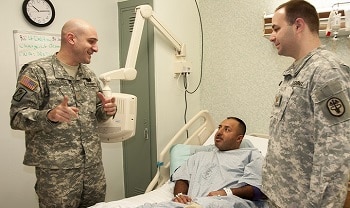
When it comes to your health it’s never a smart idea to over-look symptoms of possible health-related complications and rectal pain, bleeding from the rectum or the presence of blood in your stool are warning signs of a possibly serious complication. If you’re experiencing any of these signs, there’s a possibility that you body is suffering from one or more conditions that include it hemorrhoids, anal fissure, or anorectal cancer (although this is rare).
Hemorrhoids is a condition that should be treated by a GI doctor as Hemorrhoids is a medical condition that means the veins in the rectum and anus have become “swollen” which can cause the veins to bulge which will then result in severe agitation especially during bowel movements. Swollen hemorrhoids may be referred to by your gastroenterologist as “piles” as this is a commonly used medical term for this particular condition.
Hemorrhoids , depending on the severity of you case(if it’s determined by the GI doctor that you in-fact have it), you may undergo an operational procedure where the gastroenterologist will make use of specially designed medical equipment (not that intrusive) to “shrink” and “remove” the hemorrhoids which could actually be done on-site at the GI doctor’s office. Another treatment option is the GI doctor administering an injection in to the hemorrhoid with a specially formulated solution that will result in scarring the hemorrhoid to close it off.
Anal fissure is another condition that could be occurring if bleeding from the rectum is prevalent as this condition is the occurrence of “tearing” in the anus lining which will cause blood to originate out of the rectum which can be noticeable by looking at the stool (is blood noticeable?).
Finally, bleeding from the rectum can “possibly” be a sign of “anorectal cancer ” although this is quite uncommon and not the typical cause of bleeding from the rectal region. “Anorectal cancer” is a malignant infested disease that forms within the tissues and glands of the anus. If you’re suffering with HPV (human papillomaviurs) will increase the chances of “rectum cancer development” so it’s vitally important that you seek diagnosis is warning signs such as rectal bleeding occur.
For elderly/older women, experiencing a bulge or in the rectal area (comparable to a stomach bulge) is a serious sign of either “rectal prolapse” or “vaginal prolapse”; serious yet treatable conditions that can be cured by a gastroenterologist thru the practice of medication(s) or procedural operations.
In the United States it’s estimated that 10% of all elderly women suffer from rectal prolapse with signs ranging from rectal bleeding to the feeling of a “bulge” in the rectal region (noticeable to the touch). Rectal prolapse, specifically, is a condition in which the parts of the large intestine will protrude out of the anus and will cause quite a bit of discomfort, pain, difficulty with making a bowel movement and rectal bleeding.
If such signs occer, don’t procrasitance on receiving treatment. Consult with a GI doctors so treatment preparation(s) can be facilitated.
Vaginal prolapse is another condition that rectal bleeding can be a warning sign of. Vaginal prolapse is a serious condition where the bladder, rectum, urethra, small bowel or uterus will begin to fall out place.
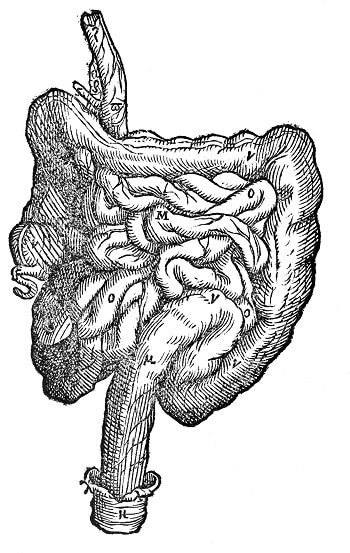
If any of these warning signs occur, it’s time to visit a gastroenterologist so you can receive an accurate diagnosis and treatment.
When it comes to your overall health, maintaining your normal body functions and avoiding complications a gastroenterologist can is a great go-to medical professional as you’ll be able to take advantage of the specialized training that the GI doctors has received so you can alleviate yourself of medical complications.
If any of this signs on this list has occurred, don’t hesitate to seek the intervention of a GI doctor. It’s paramount to ensuring the longevity of your health and will provide you with the peace-of-mind knowing that your symptoms are being affectively diagnosed and of course, treated.
We hope you found this guide helpful. Your gastrointestinal health is important to us and it’s our sincere mission to provide useful medical advice and suggestions.
 Sacral nervestimulering for fekal inkontinens
Fekal inkontinens, når du utilsiktet tar avføring, kan være en ekstremt opprivende opplevelse. Når det skjer på en kontinuerlig basis, kan det ta ganske mye på en persons livskvalitet, sosiale liv og
Sacral nervestimulering for fekal inkontinens
Fekal inkontinens, når du utilsiktet tar avføring, kan være en ekstremt opprivende opplevelse. Når det skjer på en kontinuerlig basis, kan det ta ganske mye på en persons livskvalitet, sosiale liv og
 Aromatasehemmere for å forhindre tilbakefall av brystkreft
Aromatasehemmere er en klasse legemidler som brukes for å forhindre tilbakefall av kreft hos postmenopausale kvinner med østrogenreseptor-positiv brystkreft. Disse medisinene er også foreskrevet for p
Aromatasehemmere for å forhindre tilbakefall av brystkreft
Aromatasehemmere er en klasse legemidler som brukes for å forhindre tilbakefall av kreft hos postmenopausale kvinner med østrogenreseptor-positiv brystkreft. Disse medisinene er også foreskrevet for p
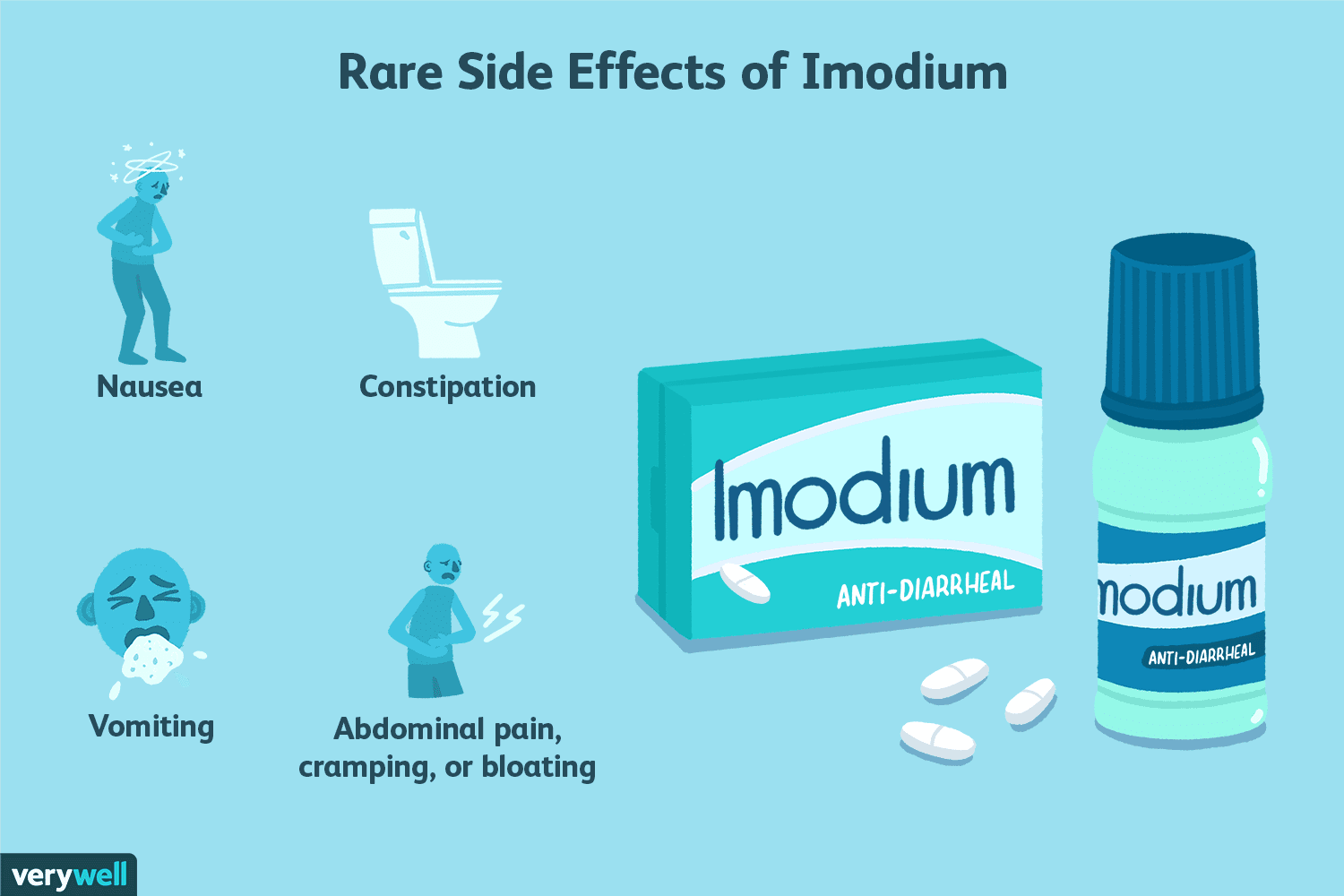 Sikkerheten ved å ta imodium for å behandle diaré
Imodium (loperamid) er ofte god behandling for diaré, men er det trygt? Hvor mye kan du ta uten å bekymre deg for at du har tatt for mye? La oss ta en titt på hva Imodium kan gjøre for deg og om det h
Sikkerheten ved å ta imodium for å behandle diaré
Imodium (loperamid) er ofte god behandling for diaré, men er det trygt? Hvor mye kan du ta uten å bekymre deg for at du har tatt for mye? La oss ta en titt på hva Imodium kan gjøre for deg og om det h